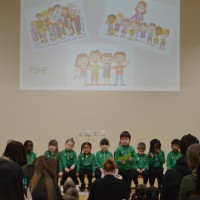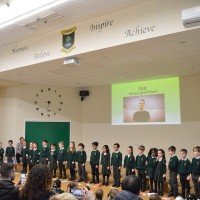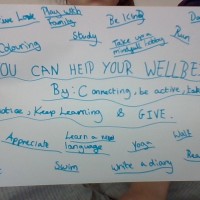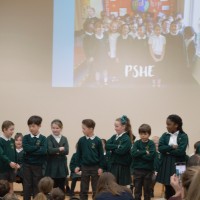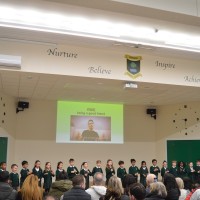PSHE & RSE
At Danson we teach a broad PSHE curriculum which is taught throughout the school covering all areas of the DfE requirements for the statutory Relationships and Health Education as well as financial education, online safety, wider safety and citizenship. The skills and knowledge covered promotes the spiritual, moral, cultural, mental and physical development of the children at school and in society, and prepares them for the opportunities, responsibilities and experiences of later life.
At Danson, we have decided to use SCARF’s whole school approach to plan and deliver PSHE lessons. It is taught through six half termly units, with all year groups working on the same theme at the same time. It is a spiral curriculum and the content of the themes is built upon and developed as the children move through the school so that they have access to a range of topics that are relevant and age appropriate. The aim of these themes is to:
- Give pupils the knowledge and develop the self-esteem, confidence and self-awareness to make informed choices and decisions;
- Encourage and support the development of social skills and social awareness;
- Enable pupils to make sense of their own personal and social experiences;
- Promote responsible attitudes towards the maintenance of good physical and mental health, supported by a safe and healthy lifestyle;
- Enable effective interpersonal relationships and develop a caring attitude towards others;
- Encourage a caring attitude towards and responsibility for the environment;
- Help our pupils understand and manage their feelings, build resilience and be independent, curious problem solvers;
- Understand how society works and the laws, rights and responsibilities involved.
Circle time is an integral part of PSHE lessons and is used to provide a forum in which pupils can explore feelings, develop understanding and practise skills. It provides a time to explore and debate challenging issues all children have to deal with. Class agreements are created and agreed upon with every class to ensure they know that they can share their thoughts and ideas in a safe, secure and respectful environment.
Our PSHE curriculum is written as a universal core curriculum provision for all children. Inclusivity is part of our philosophy at Danson. Children with special educational needs are taught the full PSHE curriculum which is tailored by their teacher to meet their needs. Some children may receive additional support to help them take a full and active role in PSHE lessons. Tasks will be adapted if necessary to help children to succeed and reach their potential. This includes tailoring the content and giving pupils more time to understand new vocabulary taught.
Throughout the content of our curriculum, we promote the needs and interests of all pupils, irrespective of gender, culture, ability or personal circumstance. Teaching takes into account the age, ability, readiness, and cultural backgrounds of children and those with English as a second language to ensure that all can fully access PSHE education provision. We use PSHE education as a way to address diversity issues and to ensure equality for all.
Danson Primary School PSHE Policy
PSHE Overview
Me and My Relationships - Autumn 1 - Progression of Skills
Valuing Differences - Autumn 2 - Progression of Skills
Keeping Safe - Spring 1 - Progression of Skills
Rights and Respect - Spring 2 - Progression of Skills
Being My Best - Summer 1 - Progression of Skills
Growing and Changing - Summer 2 - Progression of Skills
National Curriculum - PSHE
RSE at Danson
At Danson through our PSHE curriculum, we ensure we cover the requirements of the DfE’s statutory RSHE guidance. This guidance was designed to equip the children with the knowledge to make informed decisions about their wellbeing, health and relationships as well as preparing them for a successful adult life.
Anti-Bullying at Danson
At Danson Primary School, we aim to create an inclusive environment for all pupils and work with all members of the school community to create an ethos and culture of kindness and respect that permeates every aspect of school life. As a consequence, we strive to provide a safe, caring and friendly environment for learning for all pupils to allow them to improve their life chances and help them maximise their potential.
As a school, we are aware that pupils may be bullied in any school or setting, and recognise that preventing, raising awareness and consistently responding to any cases of bullying should be a priority to ensure the safety and well-being of our pupils. We are committed to developing an anti-bullying culture where the bullying of adults, children or young people is not tolerated in any form.
In recognition for our commitment to stop bullying and improve the wellbeing of our pupils, we were awarded United Against Bullying Silver School status.
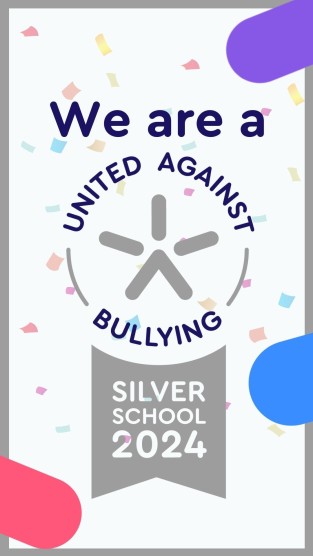
Anti-Bullying Ambassadors
Our Anti-Bullying Ambassadors perform a key role in leading our anti-bullying work at school. They are upstanders towards bullying behaviour and role models in promoting a respectful culture in school. The Anti-Bullying Ambassadors have been trained to listen to and support their peers to resolve incidences of unkind and mean behaviour actively preventing the occurrence of repetitive and intentional bullying behaviour.
Before being successfully appointed, the ambassadors had to apply for their role, explaining what skills and ideas they have that would make them a great Anti-Bullying Ambassador.
As part of their role, they have taken an active part in helping to plan Anti-Bullying Week, delivering an assembly on Anti-Bullying to the rest of the school, contributing to the creation of a child-friendly Anti-Bullying Policy, gathering the views and opinions of their peers and being a visual presence on the playground who others can go to for support.
Anti-Bullying Week
Every year at Danson, we recognise Anti-Bullying Week and the national theme of the year. Over the course of the week, the children are be taught to celebrate and respect each other’s differences, to develop a greater understanding of what bullying is and who to turn to for help if they feel they are being bullied or have experienced someone being unkind to them. This is developed through assemblies, visitors, workshops, activities, competitions and Odd Socks Day.
Anti-Bullying Week Information
Anti-Bullying Policy
Child Friendly Anti-Bullying Policy
Websites

